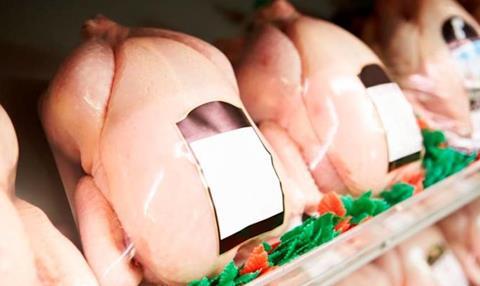A new peak in grocery inflation has meant products like poultry, butter and milk have seen “the biggest jumps” in price, according to the latest Kantar market report.

Overall, supermarket sales rose by 2.2% in the 12 weeks to 7th August as grocery price inflation hit a new high of 11.6%. This period marks the fast growth in sales the industry has seen since April 2021 as the market continues its recovery post-pandemic, despite price inflation now challenging the sector.
However, grocery inflation is at the highest level since Kantar first started tracking the data in 2008.
Fraser McKevitt, head of retail and consumer insight at Kantar, said that the rise means that the average annual shop is set to increase by a staggering £533, or £10.25 every week, if consumers buy the same products as they did last year.
He added: “It’s not surprising that we’re seeing shoppers make lifestyle changes to deal with the extra demands on their household budgets. Own-label ranges are at record levels of popularity, with sales rising by 7.3% and holding 51.6% of the market compared with branded products, the biggest share we’ve ever recorded.”
Consumers searching for value
Kantar said that comparisons against ‘the last financial crisis’ were becoming visible. McKevitt explained: “People are shopping around between the retailers to find the best value products, but back in 2008 there was much more of a reliance on promotions.
“It’s harder to hunt out these deals in 2022 – the number of products sold on promotion is at 24.7% for the four weeks to 7th August 2022, while 14 years ago it was at 30%. Instead, supermarkets are currently pointing shoppers towards their everyday low prices, value-ranges and price matches.”
Lidl remains the fastest growing grocer, with sales up by 17.9% over the latest 12 weeks, raising its market share to 7%. Boosted by the popularity of its dairy goods and bakery lines, this is the retailer’s highest rate of growth since September 2017.
The latest figures also found that Aldi performed strongly, and its market share increased by 0.9 percentage points to 9.1%. Together Lidl and Aldi have gained 1.8% of British grocery sales over this period, representing a £2.3 billion annual shift in spending towards the discounters.
Annual footfall continued to pick up in store while online shopping declined. McKevitt said: “Shoppers have made the most trips into store since March 2020. This is understandably impacting the online grocery market, and its total share has dropped to 11.8%.
“This is the first time online’s share has dipped below 12% since the early days of the pandemic in May 2020. Even so, 19% of the UK population still made an online order during the past four weeks, the equivalent to 5.4 million households.”
This story was originally published on a previous version of the Meat Management website and so there may be some missing images and formatting issues.












